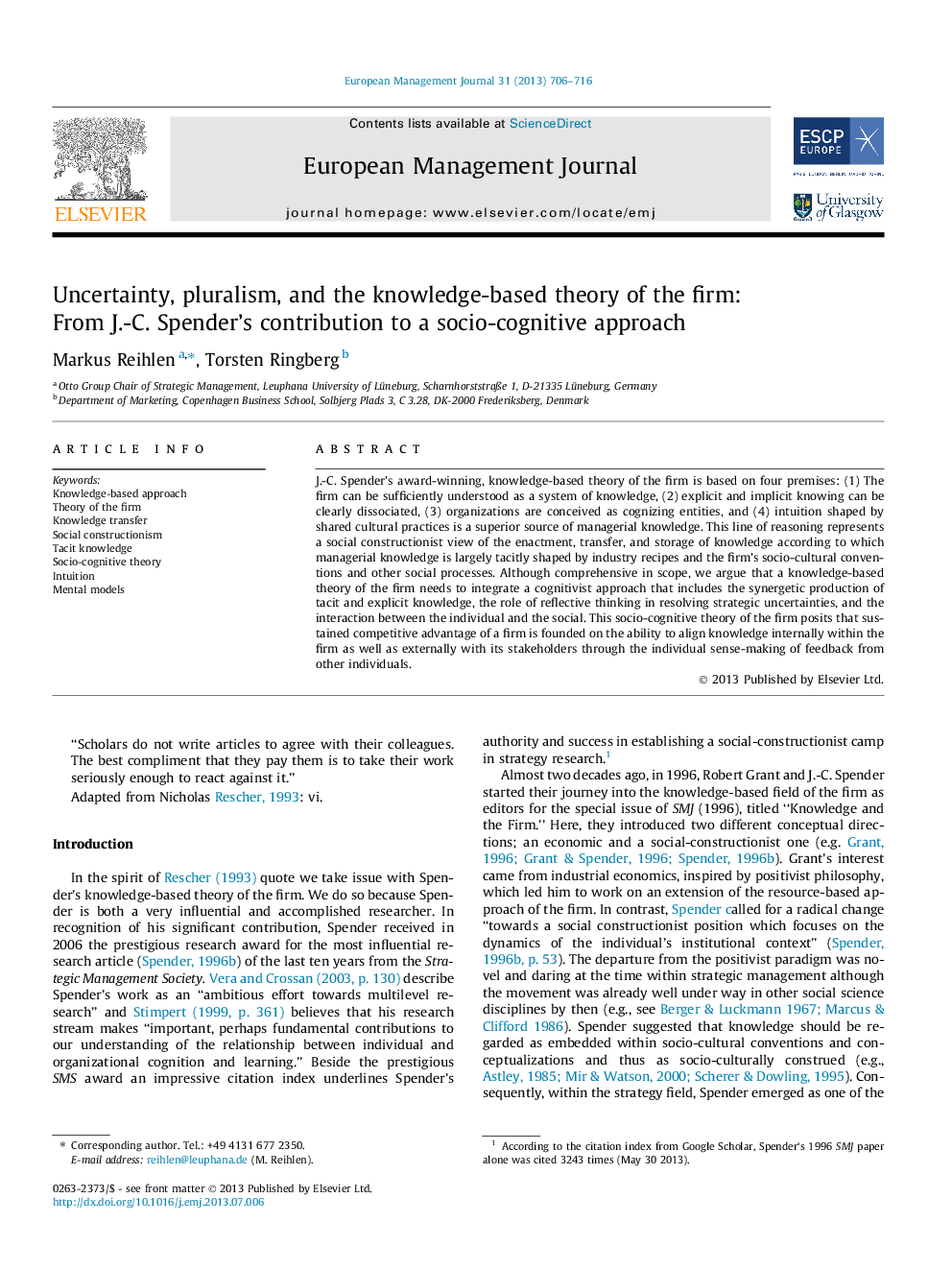| کد مقاله | کد نشریه | سال انتشار | مقاله انگلیسی | نسخه تمام متن |
|---|---|---|---|---|
| 1014980 | 939701 | 2013 | 11 صفحه PDF | دانلود رایگان |

• We reconstruct J.-C. Spender’s award winning knowledge-based theory of the firm.
• We critically examine his main assumptions inspired by social constructionism.
• As an alternative, we outline a socio-cognitive theory of the firm.
J.-C. Spender’s award-winning, knowledge-based theory of the firm is based on four premises: (1) The firm can be sufficiently understood as a system of knowledge, (2) explicit and implicit knowing can be clearly dissociated, (3) organizations are conceived as cognizing entities, and (4) intuition shaped by shared cultural practices is a superior source of managerial knowledge. This line of reasoning represents a social constructionist view of the enactment, transfer, and storage of knowledge according to which managerial knowledge is largely tacitly shaped by industry recipes and the firm’s socio-cultural conventions and other social processes. Although comprehensive in scope, we argue that a knowledge-based theory of the firm needs to integrate a cognitivist approach that includes the synergetic production of tacit and explicit knowledge, the role of reflective thinking in resolving strategic uncertainties, and the interaction between the individual and the social. This socio-cognitive theory of the firm posits that sustained competitive advantage of a firm is founded on the ability to align knowledge internally within the firm as well as externally with its stakeholders through the individual sense-making of feedback from other individuals.
Journal: European Management Journal - Volume 31, Issue 6, December 2013, Pages 706–716